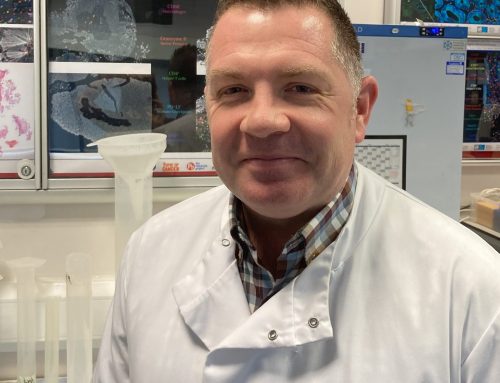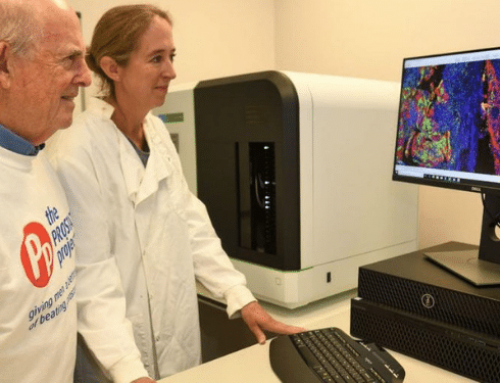
Why Immunotherapy?
There is an unmet need for the development of immunotherapeutics which use the body’s own immune system to target only tumour cells leaving normal cells untouched. This means a much more efficient therapy and fewer side effects for the patient.
What Is Immunotherapy?
Cancer immunotherapy is one of the newest and most promising of cancer treatments. Simply stated, immunotherapy is a type of treatment that helps/boosts the body’s immune system to attack cancer. As cancer cells have the ability to evade the immune system by using a number of clever techniques, immunotherapy is based on understanding these techniques and developing strategies to restore the immune system’s ability to destroy tumours. We have several lines of research that aim to understand and overcome the major mechanisms that tumours use to suppress the immune response.
How It Works
Our groups use of oncolytic viruses help to ‘kick-start’ immune reactions against infected and uninfected tumour cells. In addition, in response to viral infection, cells within the tumour microenvironment produce an array of immune-stimulating molecules called cytokines. This changes the tumour microenvironment from a suppressive environment to a pro-inflammatory one, attracting additional immune cells into the tumour.
Another mechanism that the tumour uses to turn off the immune response is using normal checkpoint pathways used by the body’s immune system as ‘brakes’. By using these signals the cancer can shut down any attack by the immune cells. Blocking the effect of these checkpoint pathways can restore the normal function of the immune cells. We are currently working on a Prostate Cancer UK funded project to look at combining oncolytic viral therapy and immune checkpoint blockade to achieve an optimal prostate cancer therapy. This approach aims to stimulate the immune system with a live virus to start the process (ie killing of the cancer cells) then combine with checkpoint blocking drugs to sustain a long-term immune control of cancer.



